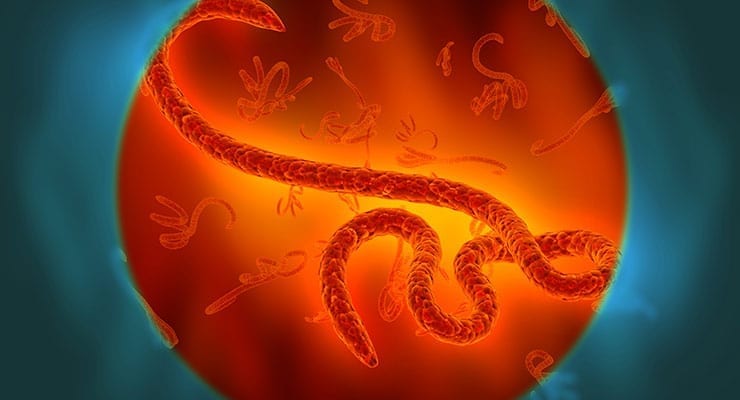 The Partnership for Research on Ebola Virus in Liberia (PREVAIL), a U.S.-Liberia joint Clinical Research Partnership, announced on July 5 the opening of PREVAIL IV, a treatment trial for men who have survived Ebola virus disease (EVD) but continue to have evidence of Ebola virus genetic material, RNA, in their semen.
The Partnership for Research on Ebola Virus in Liberia (PREVAIL), a U.S.-Liberia joint Clinical Research Partnership, announced on July 5 the opening of PREVAIL IV, a treatment trial for men who have survived Ebola virus disease (EVD) but continue to have evidence of Ebola virus genetic material, RNA, in their semen.
The trial is sponsored by the National Institute of Allergy and Infectious Diseases (NIAID), part of the National Institutes of Health, in partnership with the Ministry of Health of Liberia and the pharmaceutical company Gilead Sciences.
“Our experience with traditional public health measures to contain Ebola has proven effective,” said Tolbert Nyenswah, Head of Liberia’s (Ebola) Incident Management Systems and Deputy Minister of Heath. “However, there are still unanswered questions with Ebola therefore an attempt to address residual and persistent virus through PREVAIL IV study is critical.”
The six-month study will enroll 60 to 120 EVD survivors whose semen has evidence of Ebola virus RNA prior to their enrollment. Participants in the double-blind trial will receive either investigational drug GS-5734, manufactured by Gilead Sciences, Inc., or a placebo.
“We know that traces of Ebola virus can sometimes remain in a recovered person’s body and can initiate a new bout of illness in the survivor or be passed onto others, which could start a new chain of infection in the community,” said NIAID Director Anthony S. Fauci, M.D. “The goal of the PREVAIL IV trial is to see if the experimental drug can eliminate the traces of Ebola virus from semen in men who have survived Ebola infection. It is anticipated that this would decrease the risk of passing the virus to their sexual partners. If so, the drug would be another weapon in our arsenal against Ebola virus disease.”
Upon enrollment, volunteers in the new trial will receive the study drug (or placebo) once a day for five days and will provide multiple blood and semen samples during this period. All volunteers must have previously enrolled in the PREVAIL III Ebola Natural History study for survivors and their household and sexual contacts. Prior to enrollment, volunteers will be tested for normal kidney and liver function.
Volunteers will be seen at the clinic 10 times in the first month and then once a month for the remaining five months. Volunteers will provide blood and semen samples throughout the trial period. Investigators will test the semen samples to see if Ebola viral RNA can continue to be detected. All volunteers will be counseled to use condoms during the course of the trial.
“In addition to learning if the investigational therapy can eliminate virus from semen, we are hoping to understand if individuals have improvement in post-Ebola symptoms if the virus is eliminated,” said Dr. Elizabeth Higgs, Co-Principal Investigator. “There is a lot of interest in this study across West Africa.”

